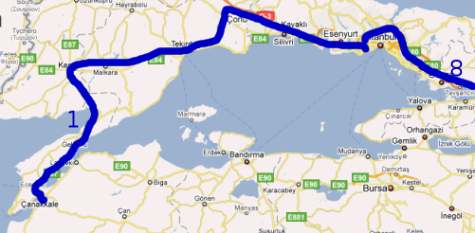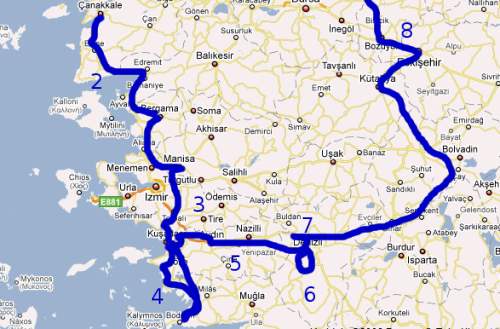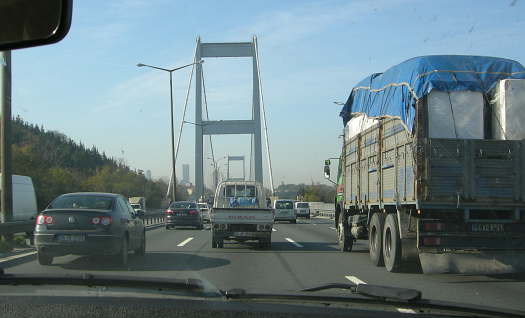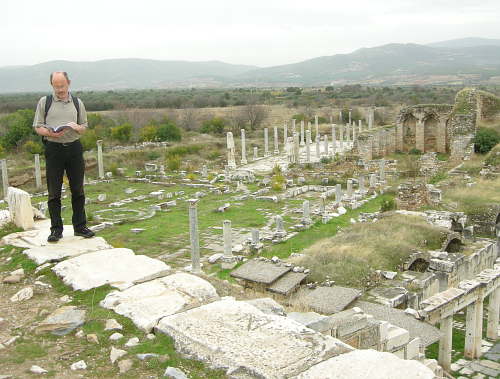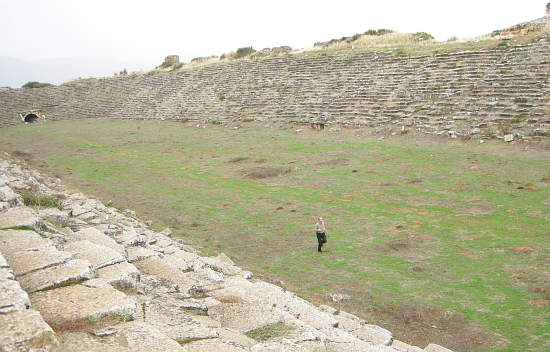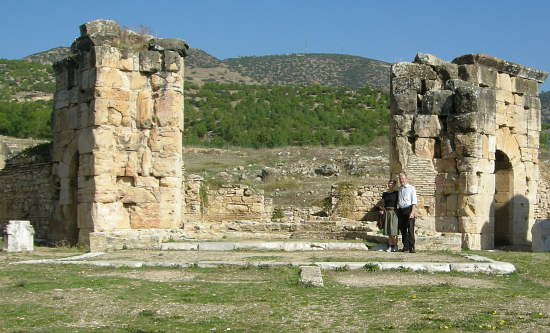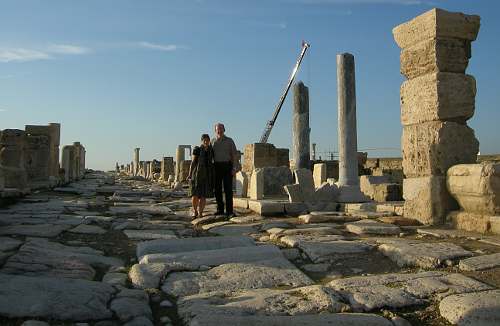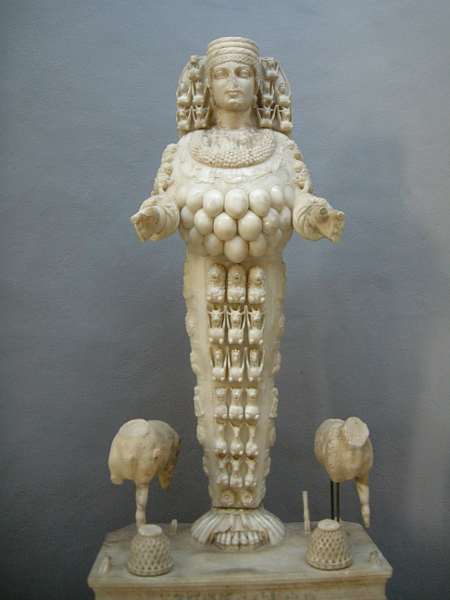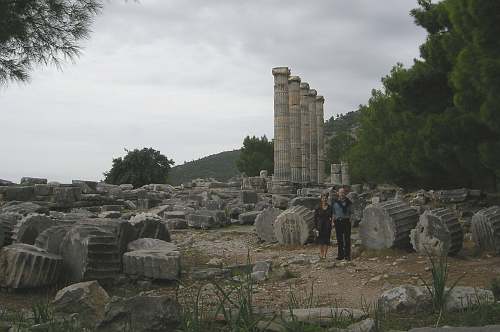Vi forkynner Kristi komme, ikke bare hans ene komme, men også hans annet, og det annet er vakrere enn det første.
Det første viste hans tålmodighet, det annet bringer Gudsrikets krone med seg. Alt hva vår Herre Jesus Kristus angår, har for det meste to sider. Hans fødsel er dobbel, én gang av Gud før all tid, én gang av jomfruen ved tidenes ende. To ganger stiger han ned, én gang i det stille, som dugg på nyslått eng (jf. Sal 72,6), en gang i fremtiden synlig for alle. Ved sitt første komme ble han svøpt og lagt i en krybbe; ved sitt annet komme hyller han seg i lyset som i en kappe. Ved sitt første komme utholdt han korset, uten å bry seg om vanæren (jf. Heb 12,2); ved sitt annet komme i herlighet kommer han med englehæren som livvakt.
Derfor oppholder vi oss ikke bare ved hans første komme, men vi venter også hans gjenkomst. For som vi ved hans første komme sa: “Velsignet være han som kommer i Herrens navn”, slik skal vi si når han kommer tilbake. For da skal vi sammen med englene møte Herren ansikt til ansikt, tilbe ham og si: “Velsignet være han som kommer i Herrens navn”.
Frelseren kommer, ikke for å dømmes, men for å dømme dem som dømte ham. Han som tidde da han ble anklaget, minner om det og sier til de illgjerningsmenn som dristet seg til å klynge ham opp på korset: “Dette har du gjort, og jeg tidde” (jf. 50,21). Den gang kom han i samsvar med Guds frelsesplan og underviste menneskene ved overtalelse; men annen gang skal de av nødvendighet underkastes hans herredømme, selv om de ikke vil.
Profeten Malaki taler også om dette dobbelte komme: “Herren, som dere søker, kommer brått til sitt tempel” (Mal 3, 1). Dette er det første komme. Og om det annet komme sier han: “Og paktens engel, som dere stunder etter, se, han kommer, Herren, Allherskeren. Hvem kan tåle den dagen han kommer? Hvem kan stå seg når han kommer til syne? For han er lik ilden som smelteren bruker, lik luten som vaskerne renser med. Han skal sitte og smelte og rense” (Mal 3,2‑3).
Også Paulus tenker på det dobbelte komme når han skriver til Titus: “Gud Frelserens nåde er blitt åpenbart for alle mennesker; den lærer oss å gi avkall på all gudløshet og alle verdslige begjær, og leve vårt liv i denne verden sømmelig, fromt og rettskaffent, alt mens vi ser frem til vårt salige håp, til den dag da vår store Gud og Frelser Jesus Kristus skal stå frem i sin herlighet”. Legg merke til at han taler om det første komme, som han takker for, og om det annet, som vi venter på.
Derfor er det at den tro som vi forkynner, i den form den er blitt overlevert sier at vi skal tro på ham “som fór opp til himmelen og har tatt sete ved Faderens høyre hånd. Han skal komme i herlighet for å dømme levende og døde, og på hans rike skal det ikke være ende”. Vår Herre Jesus Kristus kommer altså fra himmelen. Han kommer ved denne verdens ende med herlighet, på den ytterste dag. Denne verdens ende kommer, og da skal den skapte verden bli fornyet.
—————
Fra Matutin, 1. søndag i advent.
Tatt fra en av dåpskatekesene av den hellige Kyrillos, biskop av Jerusalem – ca år 350.

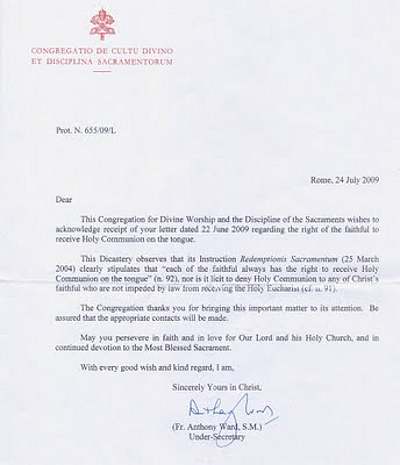
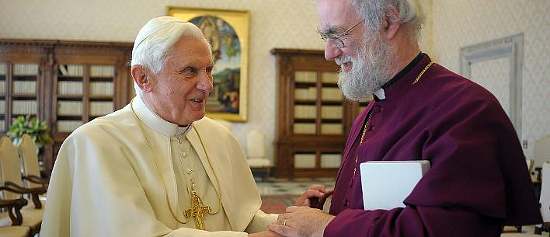
 There is universal, mournful observance of that massacre (in 1938) and of the tremendous extermination of Jews by the Reich that came after it. But the same is not done, in Europe and the West, for the many other Jewish victims who for years have been killed in Israel, assailed by Islamic terrorism.
There is universal, mournful observance of that massacre (in 1938) and of the tremendous extermination of Jews by the Reich that came after it. But the same is not done, in Europe and the West, for the many other Jewish victims who for years have been killed in Israel, assailed by Islamic terrorism.